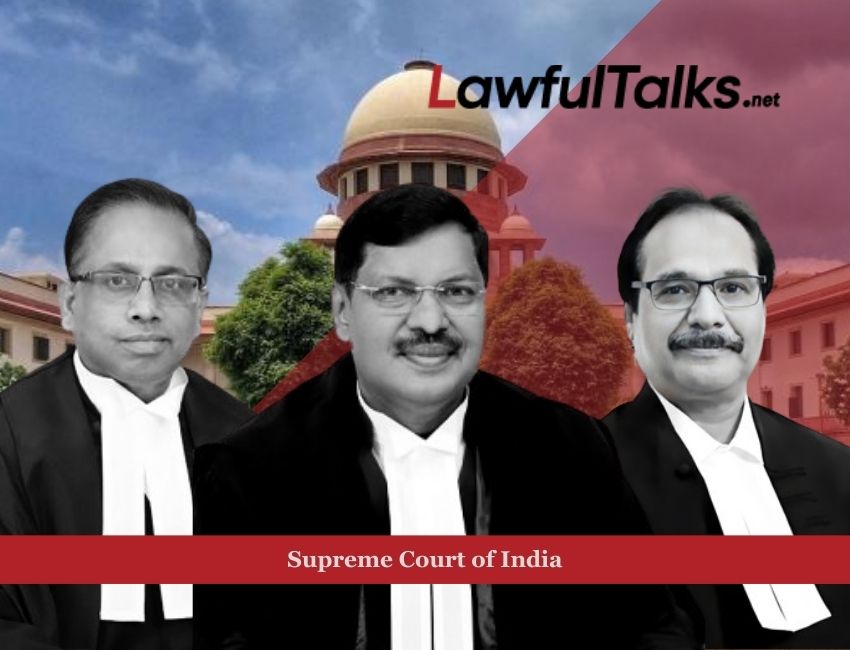Allahabad HC Sets Aside Afzal Ansari's Conviction, Allows Him to Continue as MP

In the criminal appeal of Shabna Abdullah vs. UOI & Ors., the three-judge bench of Justice B.R. Gavai, Justice Prashant Kumar Mishra, and Justice K.V. Viswanathan observed that when a Coordinate Bench of the same High Court relied on the same grounds of detention and material as the detaining authority, and thereby reached a considered conclusion that the non-supply of certain documents had vitiated the right of the detenus to make an effective representation, another Coordinate Bench could not have ignored the same.

The instant appeal challenged the final judgment and order passed by a Division Bench of the High Court of Kerala on January 24, 2023, in a Writ Petition. The High Court dismissed the petition filed by the appellant, who was the sister-in-law of the detenu, and thereby upheld the detention order of August 24, 2021, issued against the detenu (one Abdul Raoof) under Section 3 of the Conservation of Foreign Exchange & Prevention of Smuggling Activities Act, 1974 (“COFEPOSA”) and its confirmation via an order dated May 24, 2022.
The facts of the matter date back to April 20, 2021, when the unaccompanied baggage of one Althaf Moosan Mukri was checked, and inside the compressor of the refrigerator among the baggage, contraband gold weighing 14,763.30 grams, valued at Rs. 7,16,16,768/-, was found and seized. Statements of co-accused persons were recorded, whereby they admitted that the detenu, who was residing in Dubai, UAE, was running a cargo handling and forwarding business and was scouting passengers who had unaccompanied cargo to be sent to India. It was stated that the detenu would send contraband gold concealed in compressors of refrigerators along with unaccompanied baggage. On August 24, 2021, detention orders under Section 3 of COFEPOSA were issued against three co-accused persons, namely Mohammad Ali (father-in-law of the detenu), Abdulla S.S. (brother-in-law of the detenu), and Biju V. Joy (Customs G Cardholder), and they were arrested. They challenged their respective detention orders by way of separate Writ Petitions filed before the High Court of Kerala. On December 27, 2021, the detenu reached India.
The detenu wrote letters/issued reminders to the Director General (DG), Central Economic Intelligence Bureau (hereinafter, “CEIB”), as well as the Joint Secretary, COFEPOSA, stating that he had not received any information of a detention order issued against him. Thereafter, on March 5, 2022, the detenu was arrested, and he was served with the detention order dated August 24, 2021. He was supplied with the grounds of detention on March 7, 2022. Thereafter, by an order dated March 24, 2022, the case of the detenu was referred by the CEIB to the Advisory Board under Section 8(b) of the COFEPOSA Act. The detenu wrote letters to the DG, CEIB, and Joint Secretary (COFEPOSA), seeking various documents that had not been provided to him, including the audio recordings of the voice messages pertaining to the WhatsApp conversations relied upon by the detaining authority. The Joint Secretary (COFEPOSA) rejected the request, whereas the DG, CEIB, kept the request pending for the Advisory Board to take an opinion on.
On June 3, 2022, a Division Bench of the High Court, by a common judgment, allowed the three writ petitions filed by the co-accused persons. The High Court was of the opinion that the documents sought had been relied upon in the detention orders, and the same ought to have been furnished to the detenus when they requested them. It, accordingly, held that the non-supply had vitally affected the right of the detenus under Article 22(5) of the Constitution of India, and therefore, the detention order was bad. The detention order of August 24, 2021, as well as the confirmation of the detention order of one year by the Central Government, were challenged by the appellant, who filed a writ petition on grounds of non-supply of relevant documents and therefore sought the release of the detenu. A Division Bench of the High Court, other than the one that adjudicated the writ petitions filed by the co-accused persons, dismissed the Writ Petition filed by the appellant. Aggrieved by the order, the appellant filed the instant appeal in the Supreme Court.
The learned senior counsel for the appellant submitted that the court had failed to take into consideration judgments and orders in the case of Nushath Koyamu v. Union of India & Others delivered by a Coordinate Bench of the same High Court and dismissed the petition. Learned counsel appearing for the Union of India submitted that the learned Division Bench of the High Court had rightly distinguished the decision of the Coordinate Bench of the same High Court in the case of Nushath Koyamu (supra) and other connected matters. He, therefore, submitted that no inference with the impugned judgment and order is warranted.
Taking cognizance of arguments, the Supreme Court was of the considered opinion that the Division Bench of the High Court, while passing the impugned judgment and order, should have followed the view taken by another Division Bench of the same High Court, specifically when the grounds of detention and the grounds of challenge were identical in both cases. In the event the Division Bench of the High Court was of the view that the earlier decision of the Coordinate Bench of the same High Court was not correct in law, the only option available to it was to refer the matter to a larger Bench.
The appeal was allowed, and the order of detention dated August 24, 2021, and the order of confirmation of the detention order of May 24, 2022, both passed by the Central Economic Intelligence Bureau, COFEPOSA Wing, were quashed and set aside.
Case Details: Shabna Abdulla v. Union of India, Cri. Appeal/3082/2024
(For more updates, tap to join our Whatsapp Channel and our LinkedIn Page)

Shalini Chavan
Advocate, Bombay High Court
Latest Posts
Categories
- International News 19 Posts
- Supreme Court 390 Posts
- High Courts 383 Posts



















































































































































































































































































































































































































































































































































































































































































































































































































